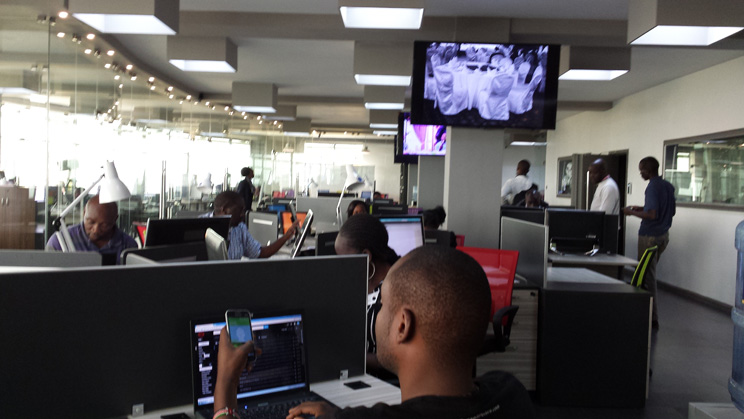The World Economic Forum (WEF) held its annual meeting last week. The theme of this year was “The Fourth Industrial Revolution: what it means, how to respond.” I didn’t follow the event but I was curious to find out whether they had any Africa-related discussions. And yes, I found an article titled “How can Africa prepare for the future of work?” by Samantha Spooner in collaboration with Mail & Guardian Africa.

The context of the article are discussions about the implications of the current industrial revolution on the future of work. According to a report by the WEF, this is how the future of work looks like:
- Jobs at most risk: routine office and administrative functions.
- Jobs that may be upgraded: manufacturing and production functions that may be enhanced through technology.
- Jobs with the brightest future: those in computer and mathematical, and architecture and engineering related fields.
According to Spooner, there are two ways to look at the impact on Africa:
- A threat: poverty will perpetuate and inequality increase as a consequence of the decreased demand for workers with less education and lower skills.
- An opportunity: if Africans move fast in redesigning education systems and adopting new technologies, they may embrace the new industrial revolution.
Time will tell whether the enormous change we’re undergoing will end up being a threat or an opportunity. But in my opinion Africa has demonstrated its leap-frogging potential. The sad current lack of infrastructures may be used in its favor: lacking a heritage from the past, it’s not exposed to the inertias of sunk investments. It’s well known how Africans went from essentially no fixed phone lines to virtually everybody using a mobile phone. In turn, this has enabled an impressive development of mobile payment systems that has leap-frogged bank branches. The same may happen in power generation with solar power leap-frogging electrical grids.
Let’s not forget that it’s not just a matter of technologies but also of management systems. I think that Africa has an opportunity here as well. With extreme capitalism under question, a system that integrates the interests of all stakeholders may be where the future lies. And I have seen African business leaders who have a lot to show to the rest of the world in this regard. If you want to know more about this, you may want to take a look at some of my earlier posts:
- Thinking long-tern in Africa
- Pygmalion in (African) management
- Cooperating with suppliers
- Africans’ communal mentality
How do you see the future of work?


Although there are a lot of new small startups creating amazing new technology most of them fail and stablished leaders look stronger than ever (or almost). The 4th Industrial Revolution has some monopolistic dynamics deep inside the core of its nature. It´s almost imposible to catch up with some Internet giants that pretty much establish the basic rules. There is no competitor for Google, the next one simply can´t make any money. Same for Apple and so on.
A serious study of the markets dynamics and the future of labour markets must be performed sooner than later. Basic regulations regarding Intellectual property, patents and monopolistic dynamics should be adjusted to promote stable, well balanced dynamics, and guarantee social stability and prosperity.
I´m not pessimistic but a new situation requires new rules, and I can´t see any politician or academic institution that is taking it seriously. I´m somehow quite concerned about the future of my kids and their opportunities to enjoy a good, well balanced live.
Hello Constantino, thank you for your comment.
I agree that we need to study this more seriously. A journal I’m involved with is in the process of publishing an issue on “The future of work.” I hope it will contribute sheeding some light.
I think what you indicate about monopolistic power , etc. applies to the information revolution. This is at the basis of the new industrial revolution but this one will affect all sectors including manufacturing. For instance, 3D printing may change dynamics tremendously — although not necessarily falling into a monopolistic situation.
And regulation, yes, we are in need for it… life comes first, then rules follow… but at this point some regulations may be overdue…